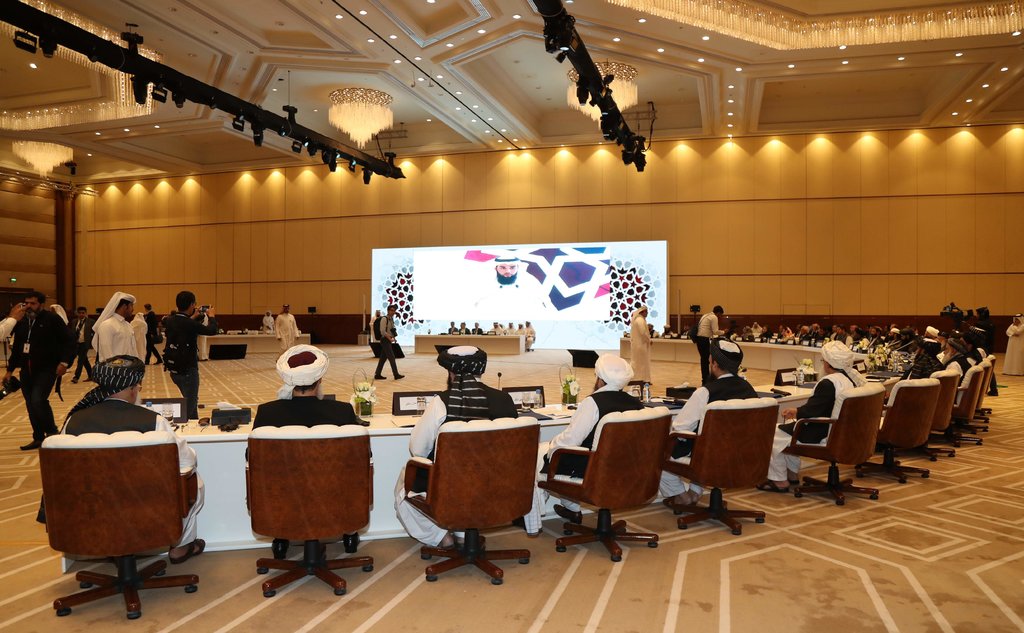The forthcoming Doha conference, scheduled for February 18th and 19th in Qatar’s capital, carries significant expectations, both from the Taliban and the broader international community. Following a previous conference in May 2023, which yielded limited results due to restricted participation, hopes are high for more substantive outcomes this time around.
Thomas Nicholson, a United Nations representative, emphasized during a press conference in Kabul on February 8th the importance of managing expectations and facilitating conducive conditions for a fruitful conference. Invitations have been extended to various stakeholders, including Taliban representatives, former politicians, civil society members, and media representatives. While the Taliban have signaled their willingness to participate, they have yet to articulate their specific expectations and demands. The group’s Ministry of Foreign Affairs has indicated that their decision to attend will be contingent upon a thorough review of the conference’s procedures and agenda.
In addition to his activities in Kabul, Nicholson is engaging in regional coordination efforts in Kyrgyzstan, particularly addressing the concerns of Central Asian countries regarding the Afghan situation. His objective is to foster alignment between the perspectives of the Taliban, regional stakeholders, and the broader international community prior to the conference.
Despite some countries hosting Taliban ambassadors and engaging in diplomatic activities in Kabul, no nation has extended formal recognition to the Taliban government. The international community has stipulated conditions such as safeguarding work rights, promoting women’s education, and ensuring an inclusive government as prerequisites for engagement with the Taliban. However, these conditions are not easily accepted by the Taliban. Key demands from the group may include international recognition, the transfer of Afghanistan’s seat at the United Nations to the Taliban, and the release of Da Afghanistan Bank’s frozen assets by the United States.
“The status of girls’ education, women’s rights, and employment is a critical concern for both Afghans and the global community. Despite covert attempts by some Taliban to address these issues, internal resistance persists within their leadership. While international expectations may wane, Afghan society, particularly women and the educated populace, find any compromise unacceptable.”
Efforts by the United Nations and its allies to appoint another special representative for Afghanistan have been met with skepticism by the Taliban, who perceive it as redundant in the presence of an existing UN representative. This potential appointment could diminish the Taliban’s influence in international political discourse related to Afghanistan, sparking new negotiations and interactions with their political adversaries abroad. This move, they argue, could undermine Afghanistan’s UN status/seat.
One of the main topics of discussion and disagreement at the Doha Conference will be the formation of an inclusive government. While the international community advocates for inclusivity, the Taliban assert that their government already represents diverse interests and dismiss calls for significant structural changes, fearing a dilution of their power.
The status of girls’ education, women’s rights, and employment is a critical concern for both Afghans and the global community. Despite covert attempts by some Taliban to address these issues, internal resistance persists within their leadership. While international expectations may wane, Afghan society, particularly women and the educated populace, find any compromise unacceptable.
Regional security concerns, particularly regarding the presence of hostile foreign groups in Afghanistan, are also on the conference agenda. Participants aim to remind the Taliban of their commitments under the Doha agreement and urge greater responsibility in mitigating threats to regional stability.
In light of these divergent demands and positions, while the Doha conference presents an opportunity for dialogue between Afghan parties and the international community, setting excessively high expectations for immediate breakthroughs may be unrealistic. The conference’s success will depend on fostering constructive engagement and managing disparate expectations to pave the way for meaningful progress in addressing Afghanistan’s complex challenges.
